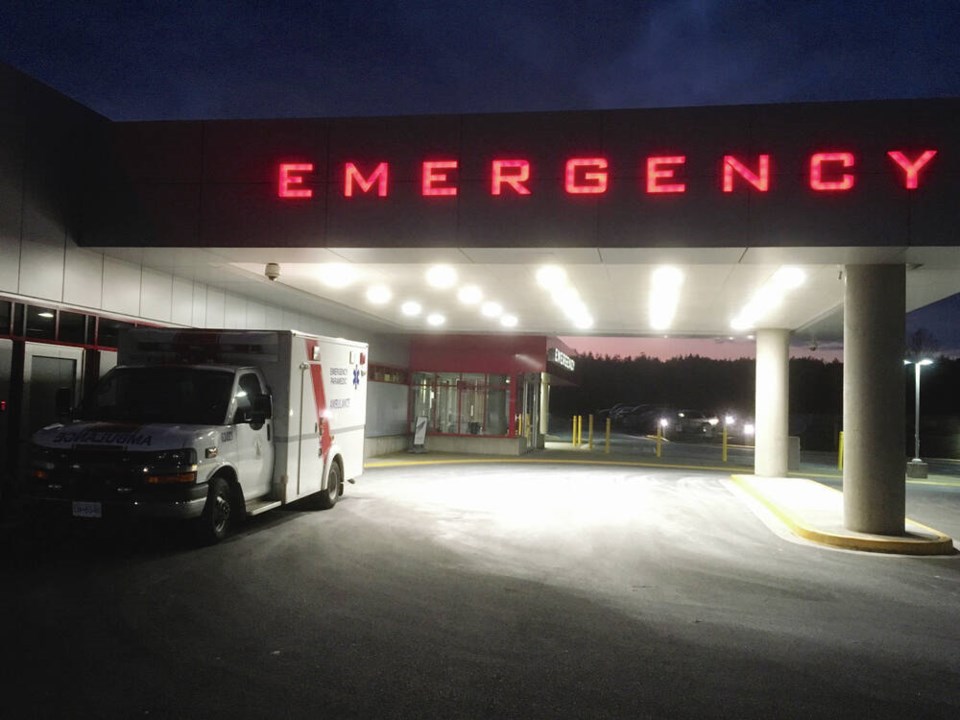Health Minister Adrian Dix insists there are no plans to have overdose-prevention sites at all B.C. hospitals, but how a provincial task force will standardize rules around patient drug use in hospitals remains unclear.
“Smoking anything, least of all serious illicit drugs, is not allowed in hospital, and drug use is not allowed,” said Dix in an interview on Thursday, adding the task force is focused on standardizing the rules and their application.
There were 10,200 people in hospital on Thursday, some of whom are living with addictions, but there are other patients and staff who must be protected from second-hand smoke and any other drug-related harms, he said.
“So what we need are clear rules and we need plans to enforce them and that’s what the task force is looking at,” said Dix.
A statement from Dix last week said the task force would “ensure the use of drugs is specific to designated spaces within or around the facility,” but Premier David Eby said this week there will be “no province-wide mandate that every single hospital has to have an overdose-prevention site or a consumption area,” because not all hospitals are dealing with the issue.
Although patients can’t smoke tobacco, crystal meth or fentanyl in hospital, said Eby, that rule is not being followed “in some hospitals in some places.”
The task force, he said, will identify where and why this is happening, “and how do we address it.”
There are official and unofficial overdose-prevention sites or smoking areas at and near some hospitals in the province, including one embedded in St. Paul’s Hospital in Vancouver.
A leaked memo from the Northern Health authority instructing hospital staff not to confiscate patients’ personal drugs led to nurses in other parts of the province, including the Island, complaining of inhaling illicit drug smoke from patients, drug deals in hospitals and drug paraphernalia in rooms.
Nurses say the problems have ramped up since January 2023, when the province introduced a three-year pilot allowing people to possess up to 2.5 grams of illicit drugs for personal consumption.
Dix said he wants to see health authorities all following the same set of rules when it comes to illicit drugs.
“I want clarity, so that the rules apply for Fort St. John and in Quesnel and in Victoria, in Richmond, in Delta.”
Injection was the most common mode of drug consumption prior to 2017, but now it’s increasingly inhalation, with 75 per cent of drug users imbibing that way, according to a recent B.C. Coroners Service report.
That presents “real challenges” to hospitals, said Dix.
But the health minister argues that highly addictive toxic street drugs are the problem in B.C., not decriminalization. Toxic street drugs have killed more than 14,000 people since a drug-overdose crisis was declared a public health emergency in 2016.
“The issue is the drugs. They are toxic and catastrophic for people’s health,” said Dix. “We have a public obligation and requirement to assist people in those circumstances and we do, and we have an obligation to assist everybody else as well.”
Federal Mental Heath and Addictions Minister Ya’ara Saks plans to meet with provincial counterpart Jennifer Whiteside and B.C. law enforcement partners to discuss decriminalization, safe-supply diversion and other matters.
“Healthcare workers have a right to a safe workplace,” Saks’ office said in a statement. “We are aware that B.C. is taking measures to address decriminalization implementation on the ground in healthcare settings.”
Last year, the federal government supported B.C. in excluding parks and playgrounds from the list of places where people can possess drugs. B.C. has since attempted to also ban people from consuming drugs in these areas, which has been stalled by a legal challenge.
Saks’ office said that before the federal government allowed the decriminalization pilot in B.C, “we were advised that law enforcement could use public disorder, public intoxication, trespassing and littering laws if needed to address public consumption issues.”
The office said people who use drugs need a place to consume, such as supervised-consumption sites, where they can receive medical attention if needed.
Premier David Eby said at a housing announcement on Thursday that he’s heard some members of law enforcement feel they don’t have the tools to address public drug use. Concerns have also been expressed about prescribed safer-supply alternatives, specifically hydromorphone, turning up on the streets.
“We’re engaging with the police about the concerns that they’ve raised there and we’re going to work with them to identify solutions to these issues,” said Eby, adding hundreds of new treatment beds have opened this year to deal with the impacts of the ongoing toxic-drug crisis.
Eby said the government believes addiction is a health and mental-health-care issue — not a criminal issue. But that doesn’t mean that “anything goes,” he said.
“We’ll ensure that police have the tools that they need to make sure that public spaces are safe, that hospitals are safe, that community spaces are safe, and we’re engaged with key stakeholders to make sure that that happens because that’s the minimum and very reasonable expectation of all BCers, myself included.”




